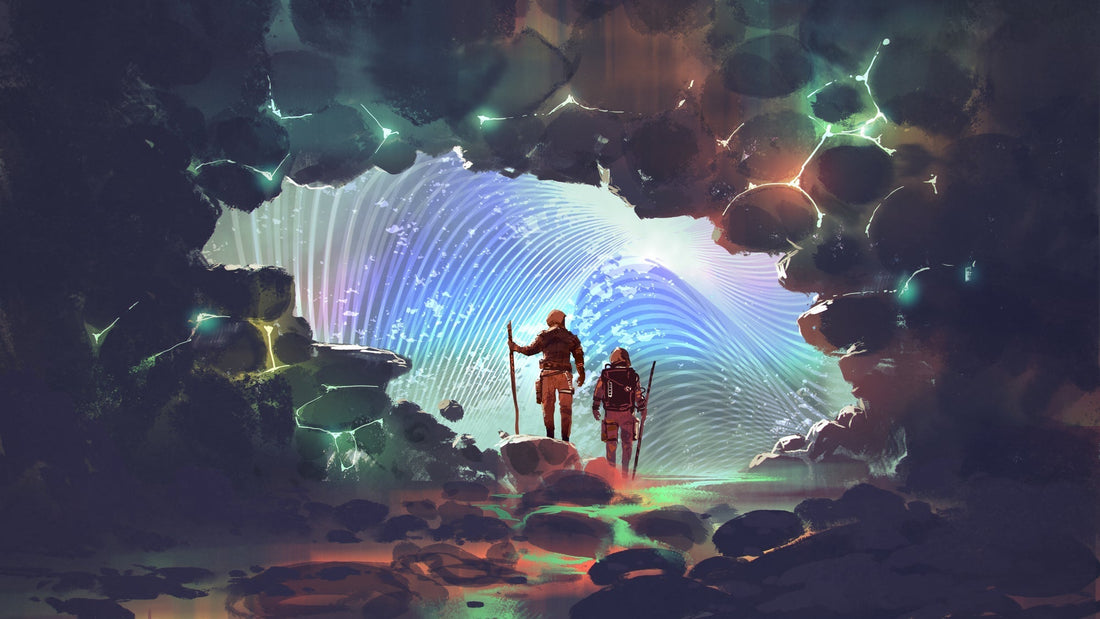
Why I HATE this writing myth
"Oh, shut up," I muttered to my computer screen after reading another one of these comments:
"If you can't build your own world, with your own mind, you shouldn't be writing."
We get comments like this on our posts all the time.
Saying that you can't write if you need advice or support is like saying, "Oh, you took a painting class? Pft, you'll never be a REAL artist." Or "What do you mean do you went to piano lessons? You probably shouldn't try to be a musician then."
The idea of a lone genius weaving words and creating masterpieces through their own natural talent is a myth.
I can't fully blame people like the commenter above who think that true art comes from natural genius. It's a common idea in our society (and a very negative one).
We revere the artist, writer, or musician who creates something amazing but we never see all the people who helped them make their art.
We see the finished product, but we don't see the process, the artist's support system, the feedback, the multiple drafts, and the years spent learning their craft with other artists.
It's why I like to read the acknowledgments section of books. They show just how many people help a writer create their work.
Lone geniuses don't exist.
Even those writers we think of as having natural talent learned from others. They all had help.
For example:
Earnest Hemingway: Before he won the 1954 Nobel Prize in Literature, Hemingway developed his writing skills by working as a journalist where he incorporated the style guides of newspapers into his signature style.
After moving to Paris, he hung out with other modernist writers of the time such as James Joyce, and was mentored by the writer Gertrude Stein (until they had a falling out). He moved from short stories to novels because of a love-hate relationship with F. Scott Fitzgerald.
Hemingway's style would have a major influence on English literature, but he didn't develop it alone. It was borne of his training in journalism and time spent with other writers.
J.R.R. Tolkien: The father of modern fantasy studied language and myth for years before he created his own fantastical stories based on Germanic legends, Old English poetry, Norse mythology, and the Finnish national epic Kalevala.
That is, he learned about worldbuilding by studying other imaginative worlds and real-life topics such as linguistics.
Not only that, he was good friends with C.S. Lewis. Together, they had a writing group called The Inklings, who would meet to read their own works out loud.
The first people to experience The Lord of the Rings and to provide the feedback that helped shape it were Tolkien's friends in The Inklings.
Tolkien didn't create Middle-Earth out of nothing. It was borne of his years of studying epic stories, his love of linguistics, and the support of his fellow writers.
N.K. Jemisin: Her Broken Earth series was the first trilogy to win the Hugo Award for all three books.
But before Jemisin was an award-winning author, she learned her craft among other writers and teachers. She attended the Viable Paradise writing workshop, joined the BRAWLers writing group, and was a member of the Altered Fluid critique group.
That series that won the Hugo three years running? Jemisin's ideas for the world started at Launch Pad, a workshop to teach science to writers and media people. Talking with astronomers, scientists, and writers helped her develop the ideas for her worldbuilding (from the acknowledgments section of The Fifth Season. Always read the acknowledgments!)
Learning from others is how we create art.
There is absolutely nothing wrong with you for needing a class, a guide, or a workbook to help you write and create.
More importantly, there is absolutely nothing wrong if writing is sometimes a struggle and if you don't always know how to do it.
That just makes you an artist.
The urge to create is innate in all humans whether it be writing, visual arts, woodworking, cooking, or any number of things we make out of practical need and simple enjoyment.
While we all want to create, the skills to do it well have to be learned. Some parts of it might come easy to you and some won't, but nobody is born with the ability to build a fictional world out of nothing or to write a gripping story.
Not all things you create have to be masterpieces.
A final note: You can create stories that are just for you, for your friends (like with a DnD campaign), for practice, or for entertaining others.
Not everything needs to be a book that is studied in university English classes, and the art that isn't deemed "genius" still has value to yourself and to the world.
So, start creating even if you need to take some time to learn how first.
If you do, we've got you covered with worldbuilding and character creation workbooks that have helped over 14,000 writers (and counting!).
Our guides cover the essentials of page-turning stories so you can start writing sooner without wasting time on endless questionnaires or contradictory advice.
Get started now with 15% off. Use code: MYTH32